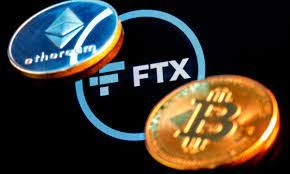How will FTX impact Bitcoin?
Published: November 15, 2022 | 12:53 AM ET
By: Ivory Johnson, CFP, ChFC, Founder, Delancey Wealth Management, LLC
Sign up to receive Your Wealth in your inbox each week

To paraphrase Alex de Tocqueville, #FTX went from Lehman Brothers to Enron without ever stopping at Stratton Oakmont. In the wake of this latest #crypto collapse, the viability of the entire digital asset space has been justifiably called into question. Bad business models should in fact disappear, although it may come to pass that the only thing FTX ever produced was a silver lining for the digital asset industry and #bitcoin in particular.
For instance, FTX was an unregulated centralized exchange that minted an unlimited supply of a token that was not backed by anything of value. These coins were owned by very few investors, leveraged, and then used as a reserve on its balance sheet. Misappropriating client funds to invest in other projects was icing on the cake. Said improprieties will most certainly bring about regulations the crypto industry needs before institutions will make meaningful and sustained investments.
In fact, the White House Executive Order on Ensuring Responsible Development of Digital Assets released in March of this year contained clear indications that a regulatory framework was forthcoming. The order described the willingness of the White House to pursue a coordination of different agencies, protection against fraud and cyber securities, anti-money laundering efforts and enumerated the benefits of a CBDC (Central Bank Digital Currency). Senators Cynthia Lummis (R-WY) and Kirsten Gillibrand (D-NY) have introduced a bill that outlined new comprehensive regulation for cryptocurrencies and FTX will likely provide the impetus to breathe life to a regulatory structure that industry and government agencies can both live with.
One can also make the case that bad business models should vanish, unlike 20% of US publicly traded companies that qualify as a zombie company that has no viable business model and only exists because of access to cheap credit. FTX and its investors will not likely be bailed out by the Fed or the treasury unlike large Wall Street firms who similarly ignored risk management protocols. This is a benefit of digital assets, that the market eventually sniffs out weak competitors and does not delay the inevitable. In their place will be better run outfits that foster innovation and better ideas that may have otherwise been crowded out by financially engineered rivals.
A bond is as straight forward as a traditional mortgage, but when you slice and dice jumbo, adjustable rate and subprime mortgages, use them as collateral for 36% of the bond market and add both leverage and derivatives you stumble across the financial crisis of 2008. Bitcoin is both simple and elegant. The supply is capped at 21 million coins that are purchased through a decentralized blockchain that has no intermediaries and whose transactions are verified by unrelated third parties known as miners. This is far different from FTX, a toxic mix of leverage, self-dealing and fraud.
FTX followed the same path as many of its Wall Street brethren took, one lined with greed, leverage and in some cases fraudulent behaviors. In the aftermath of its downfall, the industry may reevaluate what attracted many of the original crypto investors in the first place – a form of money that serves as a store of value and has no middleman, one that lacks protection from the Fed or a centrally planned infrastructure that facilitates an immediate rebound. Bitcoin is not FTX, and after this week, FTX will no longer be part of the crypto marketplace. That is a benefit of digital assets, not the flaw.
Ivory Johnson, CFP®, ChFC
Delancey Wealth Management, LLC
Founder
20 F Street, NW, Ste. 750
Washington, DC 20001
(202) 507-6340
The views expressed are that of the host and are for informational purposes only and in no event should be construed as an offer to buy or sell securities or products. Opinions expressed are subject to change without notice and do not take into account the particular investment objectives, financial situation, or needs of individual investors. The information given herein is taken from sources that IFP Advisors, LLC, dba Independent Financial Partners (IFP), IFP Securities LLC, dba Independent Financial Partners (IFP), and its advisors believe to be reliable, but it is not guaranteed by us as to accuracy or completeness. Please consult your tax and/or legal advisor before implementing any tax and/or legal related strategies mentioned in this publication as IFP does not provide tax and/or legal advice.
